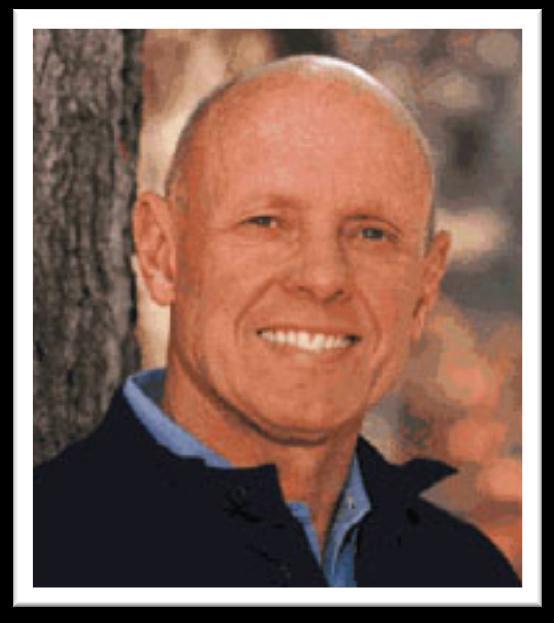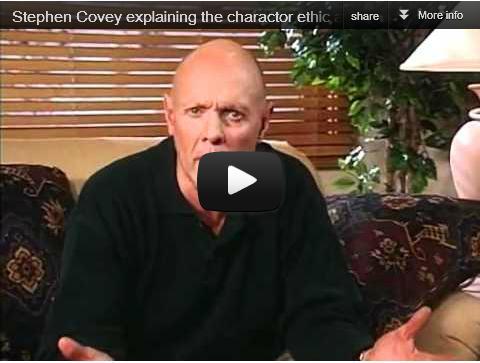
5 minute read
In Focus
Stephen R. Covey October 24, 1932 - July 16, 2012
Celebrating a Life of Everyday Greatness
Advertisement
Learn, to Leave a
Legacy.” ― Stephen R. Covey
On July 16 th this year the sad news was announced that Dr. Stephen R. Covey, co-founder and a former vice-chairman and director of FranklinCovey, had passed away peacefully in hospital due to the residual effects of a bicycle accident he suffered in the earlier April. He was 79 years old.
Perhaps best known for his highly acclaimed best seller, The 7 Habits of Highly Effective People, which has sold more than 20 million copies in 40 languages throughout the world, he also had a number of other bestselling titles including include First Things First, Principle-Centered Leadership, The 7 Habits of Highly Effective Families, and The 8 th Habit. His most recent books include The 3 rd Alternative, The Leader in Me, and Everyday Greatness.
But it will be The 7 Habits which will undoubtedly be recognised as his greatest legacy, as it defined him as one of the greatest self-help authors and motivators of his generation, and through its teachings, with his people-centred, principle driven philosophies he touched the lives of millions upon millions of ordinary people across the globe.
In 2002, Forbes named The 7 Habits of Highly Effective People one of the 10 most influential management books ever written. Chief Executive magazine recognized The 7 Habits of Highly Effective People as one of the two most influential books of the 20 th century

In 1996, Dr. Covey was recognized as one of Time magazine's 25 Most Influential Americans. In a statement from the Franklin Covey Organisation, colleagues paid tribute to the man behind the Covey brand: “To Stephen, more important than his professional work was his work with his family. Stephen was a devoted husband, father and grandfather and spent a considerable amount of time with his immediate and extended family.” “Stephen truly believed that the greatest work we do is within the four walls of our own homes and was a model of a loving and committed husband and father to the end. “

Dr Covey received the Fatherhood Award from the National Fatherhood Initiative in 2003.
Bob Whitman, chairman and CEO of FranklinCovey, said, "We lost a dear friend today. Stephen was one of the world's great human beings. His impact is incalculable and his influence will continue to inspire generations to come.” But perhaps one of the most telling tributes to Covey the man and Covey the father comes from one of his sons, describing him as “an informal, approachable person with a good sense of humour.”
Personality By Stephen Covey
In this short YouTube clip Stephen Covey describes how the research he conducted into the history of all success literature produced over the last 200 years lead him to the realisation that the focus of “Personal Development” had shifted from the Character Ethic to the Personality Ethic.
This profound insight formed the basis of his ground breaking book,
The 7 Habits of Highly Effective People.

Internet Connection Required
Quotes to Live by…
Here are 12 quotes from Stephen Covey that have the power to create a paradigm shift in our thinking, if we truly live the principles they embody:
The key is not to prioritize what’s on your schedule, but to schedule your priorities.
The main thing is to keep the main thing the main thing.
Live out of your imagination, not your history.
In the last analysis, what we are communicates far more eloquently than anything we say or do.
There are three constants in life... change, choice and principles.
Seek first to understand, then to be understood.
Start with the end in mind.
We are free to choose our actions, . . . but we are not free to choose the consequences of these actions.
Most of us spend too much time on what is urgent and not enough time on what is important.
I am not a product of my circumstances. I am a product of my decisions.
...to learn and not to do is really not to learn. To know and not to do is really not to know.
Pause for Thought…
We are often reminded, amidst the hustle and bustle of modern life, to occasionally stop and smell the flowers.
What this is really trying to say to us is that if we always live our lives in fast forward mode, fixed and fixated on the future, then we will miss the only thing we really, truly have in life, which is the here and now.

This is beautifully summed up in a short passage by John Keasler, and featured in Stephen Covey's book "Everyday Greatness":
Architect Frank Lloyd Wright told how a lecture he received at the age of nine helped set his philosophy of life.
An uncle, a stolid, no-nonsense type, had taken him for a long walk across a snow-covered field. At the far side, his uncle told him to look back at their two sets of tracks.
"See my boy," he said, "how your footprints go aimlessly back and forth from those trees, to the cattle, back to the fence and then over there to where you were throwing sticks? But notice how my path comes straight across, directly to my goal. You should never forget this lesson.“

"And I never did," Wright said, grinning. "I determined right then not to miss most things in life, as my uncle had.“










